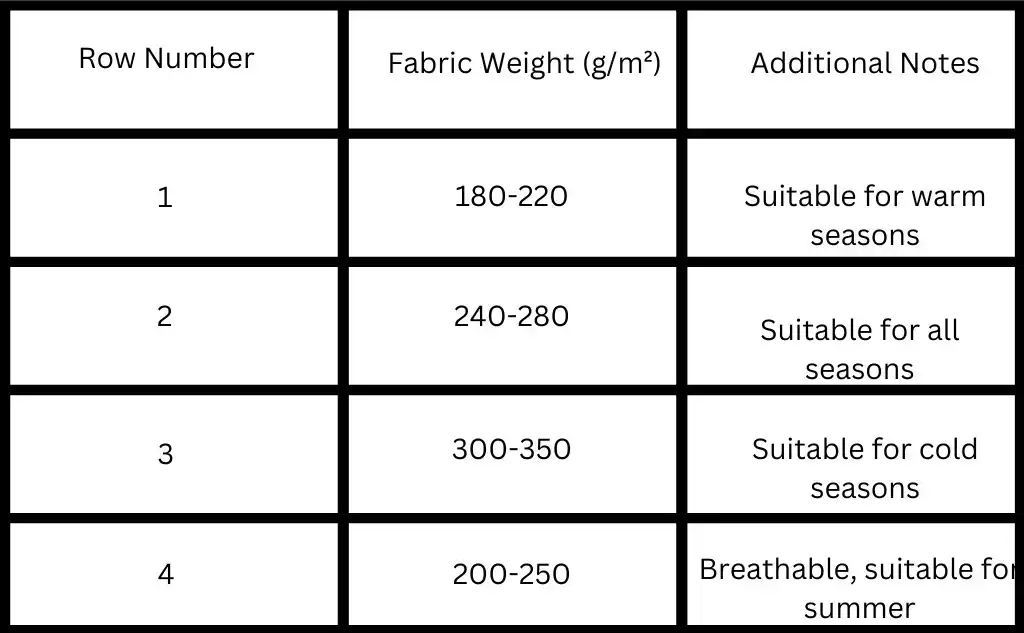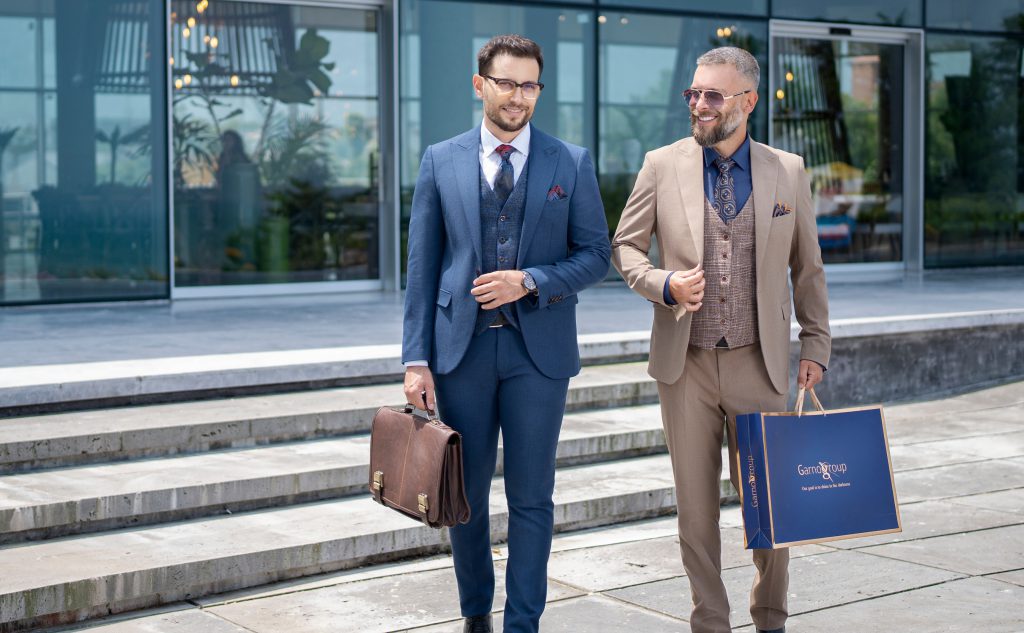Selecting the right fabric for a suit is one of the most intricate and crucial steps in crafting a classic and professional style. The choice of fabric not only plays a key role in defining the look and appeal of the suit but also impacts its comfort, durability, and even seasonal suitability. From wool fabrics with soft yet durable weaves ideal for formal settings and colder climates to lighter fabrics like cotton and linen, perfect for warmer seasons and semi-formal styles, each type of fabric reflects a distinct character in the suit.
In this article, we introduce you to the top fabric choices for suits, enabling you to find the ideal option that aligns with your needs and style, offering an unparalleled experience in both appearance and comfort.
Avoiding Low-Quality Fabrics
One common mistake when buying a suit is choosing low-quality fabrics, which tend to wear out quickly. Fabrics that lack breathability can cause excessive sweating, particularly in warm seasons, leading to discomfort. Even for suits worn during colder months, the breathability of the fabric should still be considered to ensure comfort.
Fabric Weight
The weight of the fabric significantly affects the suitability of the suit for different seasons. If you wear suits year-round, it’s advisable to have a few different suits with varying fabric weights so that you can dress appropriately for the season. For instance, lightweight fabrics like cotton are ideal for summer, while heavier materials like wool are better suited for winter.
Fiber Blends in Suit Fabrics
For Classic Suits and Wedding Suits, natural fibers like wool are among the best choices because they are breathable and resistant to wrinkles. For more casual suits, cotton or cotton blends are excellent options, as these fabrics are softer and more comfortable than wool. In warmer climates, linen is a great choice due to its lightweight and breathable nature, helping keep the body cool and comfortable. Synthetic fabrics like polyester are less breathable and not recommended for prolonged use. For maximum comfort, natural fibers are always a better choice.
Top 10 Fabrics for Suits
Choosing the right fabric can make a significant difference in the quality and appearance of your suit. Below, we review several fabric types suitable for a variety of suits, including Casual Suits, Classic Suits, and Single Jackets.
Stretch Wool Suiting
One of the best fabrics for suits requiring comfort and flexibility is stretch wool. This fabric combines wool with elastic fibers to create a stretchable material. It is ideal for those working in active environments or needing daily movement freedom. Stretch wool offers high durability and excellent form retention, making it a great option for business suits and single jackets. Its internal elasticity provides added comfort, making it an ideal choice for both Classic Suits and Casual Suits.
Advantages: High flexibility, wrinkle resistance, great comfort.
Disadvantages: Loses shape faster than pure wool and requires more care.
Worsted Wool
Worsted wool is one of the best choices for Formal Suits and Classic Suits. It undergoes a unique process that arranges the wool fibers to create a smooth, even texture, giving the suit a sleek and professional appearance with high durability. This fabric is ideal for formal occasions like business meetings, special events, and weddings, thanks to wool’s natural warmth, breathability, and form retention.
Advantages: Elegant appearance, high durability, wrinkle resistance.
Disadvantages: May feel heavy in hot weather, requires professional care.
Wool Twill
Suits made from wool twill are ideal for year-round use due to their breathability and excellent thermal insulation. Twill is resistant to wrinkles, making it perfect for daily wear or travel. Its smooth texture adds to the overall appearance of the suit, making it suitable for formal events, business meetings, and social gatherings. It’s also a great choice for Casual Suits and Classic Suits.
Advantages: Wrinkle resistance, great thermal insulation, versatile for all seasons.
Disadvantages: Slightly heavy, may not be ideal for very warm climates.
Cotton Twill
Cotton twill is a popular and widely used fabric for Business Suits. Its diagonal weave structure makes it durable and long-lasting. For daily use, cotton twill offers a comfortable and breathable option that keeps you cool during hot weather, while maintaining a neat and professional appearance. Its high resistance to wear and wrinkles makes it a practical choice for work.
Advantages: High breathability, wear resistance, suitable for daily use.
Disadvantages: Not a great insulator for cold weather, may require frequent ironing.
Polyester-Viscose Windowpane
A polyester-viscose blend is an excellent option for affordable, high-quality suits. Polyester offers durability and wrinkle resistance, while viscose adds softness, making the fabric comfortable for extended wear. The windowpane design adds a modern and stylish touch, making this fabric ideal for Casual Suits and Formal Suits.
Advantages: Affordable, wrinkle-resistant, soft and comfortable.
Disadvantages: Limited breathability, may become uncomfortable during prolonged use.
Linen
Linen is one of the best fabric choices for Single Jackets, particularly for casual or semi-formal settings. Due to its lightweight and breathable nature, linen is ideal for warm weather. It dries quickly and is highly suitable for everyday activities and informal environments. The natural and matte look of linen adds a laid-back but stylish appearance to single jackets.
Advantages: Lightweight, highly breathable, perfect for warm seasons.
Disadvantages: Prone to wrinkles, not suitable for formal occasions.
Linen Blend
Linen blends offer the coolness and breathability of linen while reducing its tendency to wrinkle. For Classic Suits or Wedding Suits, linen blends provide a balance of formality and comfort, making them suitable for various settings. These fabrics perform well in warm seasons and are ideal for long-term use.
Advantages: Cool and breathable with reduced wrinkling, suitable for warmer climates.
Disadvantages: Still less formal than other fabrics, requires maintenance.
Silk Blend
For Luxury Formal Suits and Wedding Suits, silk blends are a popular and luxurious choice. These fabrics combine natural silk with other fibers like wool, viscose, or polyester, resulting in a fabric that is both elegant and durable. If you’re looking for a suit with a luxurious appearance that is also comfortable and long-lasting, silk blends are the way to go.
Advantages: Luxurious and beautiful, soft and comfortable, shiny and attractive.
Disadvantages: Expensive, requires professional care, sensitive to wear and stains.
Satin
For formal events, Satin offers a sleek and polished appearance. With its shiny, reflective surface, satin is one of the most popular fabric choices for Wedding Suits and Luxury Formal Suits. Its softness and shine make it a standout choice for formal settings, ensuring you look elegant and sophisticated.
Advantages: Glossy and attractive, suitable for formal events, soft and comfortable.
Disadvantages: Sensitive to wear, requires extra care, limited to formal events.
Velvet
For special occasions like weddings, velvet is an exceptional fabric choice for Wedding Suits. Velvet’s rich, luxurious texture provides a striking and memorable appearance. It is comfortable to wear and exudes sophistication, making it perfect for grooms looking for a unique and elegant style.
Advantages: Luxurious and elegant, soft and comfortable, perfect for special events.
Disadvantages: Requires extra care, sensitive to stains and wear, best for limited use.
Conclusion
The selection of fabric is one of the most important factors in determining the quality, appearance, and durability of a suit. Fabrics like wool, cotton, and linen, which are natural, are some of the best choices for Business Suits, Classic Suits, and Casual Suits due to their breathability, durability, and luxurious look. Blended fabrics like silk and linen blends are ideal for Luxury Formal Suits and Wedding Suits. It’s important to consider the type of fabric and its intended use when purchasing a suit to make the best choice for your needs.
FAQs
- What is the best fabric for a business suit?
Stretch wool and worsted wool are excellent choices for business suits due to their durability and ability to retain shape. - Are synthetic fabrics suitable for suits?
Synthetic fabrics like polyester offer good wrinkle resistance, but they are less breathable and not recommended for long-term wear. - What fabric is best for formal suits?
For formal suits and wedding suits, luxurious fabrics like velvet, satin, and silk blends are recommended for their elegance and sophistication. - What fabric is suitable for summer suits?
Linen and linen blends are the best choices for summer due to their breathability and lightweight nature. - What fabric is best for casual suits?
Cotton twill and polyester-viscose blends are ideal for casual suits, offering comfort and durability.
















